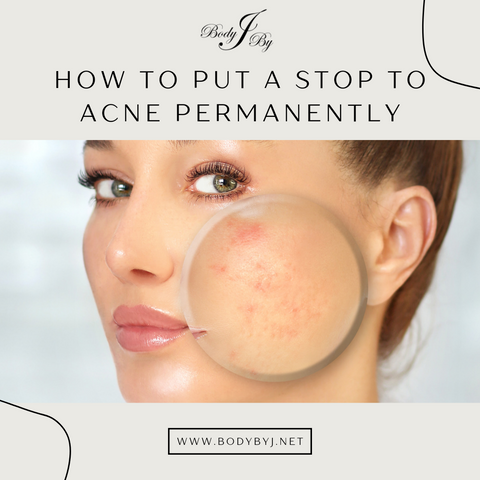
Acne mainly affects teenagers and adults. Although some acne sufferers find that acne gets better with age, for some teenagers it can persist indefinitely until they reach adulthood, while others who never had acne when they were young may suddenly develop acne. Acne is the most common skin condition and before we think about how to get rid of acne, we need to understand this common skin condition.
What is Acne?
As mentioned above, acne vulgaris is one of the most common skin diseases affecting people around the world (more than 80% of the population). Acne is the appearance of small bumps or pustules (acne or large cysts). Although a full understanding of the cause of acne remains an ongoing task, several theories relate to genes and hormonal activity.
Hormones are considered the main cause of acne, especially the male sex hormone testosterone. Both men and women have this male hormone and men have more testosterone than women. As levels of male hormones rise in both men and women, the sebaceous glands in the skin are stimulated to produce large amounts of sebum (oil).
This large amount of sebum eventually clogs the hair as it is secreted by the sebum glands into the hair follicles surrounding the glands. The clogged hair then causes certain bacteria (Propionibacterium acne) to attach and multiply, which in turn causes the bacteria to release certain enzymes that cause inflammation of the hair follicles (the sebum glands stick to the hair follicles). This inflammation can cause swelling followed by agitation, which allows bacteria to spread on the skin and cause various acne breakouts.
The Inflammation Caused by Acne
The inflammation caused by acne is most found on the face, back, neck, chest and shoulders. These lumps can hurt or ache and even irritate. In severe cases, acne can have pus-filled sacs that rupture and cause discharge. While hormonal imbalance during puberty is believed to be one of the causes of acne, hormonal imbalance can also occur during menstruation, stress, etc.
How to Stop Acne
Since this skin condition affects more than 80% of the general population, there are diverse treatment alternatives so that you can have clear, pimple-free skin, or at least reduce breakouts. Most of us like to look good and suffering with acne can greatly impact a person’s self-esteem.
Breakouts seem to be made worse during pregnancy and exposure to the elements. If acne is a serious problem, here are some tips to get rid of acne and have clear skin:
Clean thoroughly
Keeping your face clean and oil-free is sometimes what you need in keeping mild acne at bay. Washing your face more than twice a day can be very harmful to your skin, as it causes dryness and over produces copious amounts of sebum or oil and sebaceous glands overflow. Also, be gentle towards your skin. Always use soft, clean towels and continue to practice good hygiene.
Stay hydrated
If you’re dehydrated, your body may signal your skin’s oil glands to produce more oil. Dehydration also gives your skin a dull appearance and promotes inflammation and discoloration.
To keep your body well-hydrated, aim to drink at least eight, 8-ounce glasses of water each day.
Limit sun exposure
Catching some rays may dry out pimples in the short term, but it can have unwanted skin consequences in the long run. Frequent sun exposure dehydrates skin, which, over time, causes it to produce more oil and block pores.
Wearing sunscreen can help protect your skin year-round. Of course, as you might already know, sunscreens tend to be oily. For both sun and pimple protection, opt for a noncomedogenic, oil-free and fragrance-free sunscreen.
Keep your hands off your face.
Avoid touching your face or propping those pimples! Not only can you spread bacteria, you can also irritate the already inflamed skin. Never pick or pop pimples with your fingers, as it can lead to infection and scarring.
Mental stress
Hormone levels can also affect stress. Chronic stress can lead to hormonal imbalances which can lead to acne and many other harmful side effects of stress. Stress slows the healing process, so try to find some outlets. Go for a walk, meditate, or a hobby you enjoy that can help lower your stress.
Ultimately the best ways to get rid acne is to monitor your body, relieve your stress and continue to best skin care practices!
Make sure you share the knowledge to many friends and loved ones.


Share and get 15% off!
Simply share this product on one of the following social networks and you will unlock 15% off!